Generative Engine Optimization (GEO) is becoming essential as AI search engines like ChatGPT, Google Gemini, and Perplexity reshape how people discover, evaluate, and engage with information online. Traditional SEO isn’t just evolving. it’s being redefined. To stay visible when AI is answering the questions for your customers, brands need a new playbook.
This guide breaks down what GEO actually means, how to measure performance, and which GEO tools are leading the pack. Whether you’re a marketer, founder, or SEO pro, we did the heavy lifting so you don’t have to – here’s everything you need to navigate this next chapter of search.
What is Generative Search Optimization (GEO)?
GEO is marketing strategy and tactics focused on optimizing for brand visibility and citations on generative engines and LLMs. It involves optimizing your content to appear prominently in responses generated by AI search engines like ChatGPT, Perplexity and Gemini. Unlike traditional SEO, which targets rankings in search engine results pages, GEO ensures your content is cited or mentioned within AI-generated responses. It’s also often referenced as AEO, LLMO or AIO.
GEO focuses on:
- Improving clarity, consistency, and accuracy of content.
- Ensuring your brand is consistently cited by AI models.
- Crafting content optimized for AI’s contextual understanding.
- Building a website optimized for AI crawlers and agents.
Goodie AI recently published a study, the AEO periodic table on AI search visibility ranking factors, that offers insights into the key variables that impact GEO.
How to Measure GEO Performance
Here are key GEO metrics to monitor:
- AI Visibility Score: Frequency of your brand or content appearing in AI-generated responses.
- Source Citations: How often AI platforms reference your content.
- Share of voice: comparing the share of visibility of one brand against competition within a specific market
- Competitive Benchmarking: Comparing your visibility against competitors.
- Sentiment Analysis: Ensuring AI accurately and positively portrays your brand.
Tracking these metrics provides insights into your GEO strategy’s effectiveness and helps identify areas for improvement.
Overview of the Market for GEO Tools
Features
Many of the tools we reviewed offer visibility monitoring features, but some are more detailed and extensive than others. The main methodology behind measuring this centers on analyzing multiple prompts and providing insight about a brand’s visibility or lack thereof in the responses to those prompts.
Optimization Capabilities
Most of the current players lack strong optimization capabilities. While they provide helpful insights, those insights are not always coupled with actionable optimization opportunities. Some, however, are more advanced in that regard than others.
Pricing
The space is split between enterprise tools and small business light tools. The light tools are not as accurate and tend to only focus on the visibility aspects of GEO. We found that the enterprise tools like Goodie, Scrunch, and Profound have more capabilities and offer more value, but are also more expensive.
GEO Market Dynamics
There are many new emerging players, so we’ll continue to update this list as the market changes. New York City houses many of the current players and is rapidly becoming the GEO capital of the world.
How to Choose the Right GEO Tool
When selecting a GEO tool, consider:
- Platform Coverage: Support for major AI platforms (ChatGPT, Perplexity, Google Gemini).
- Real-Time Monitoring: Quick updates and alerts on brand mentions.
- Actionable Insights: Clear guidance on content optimization.
- Integration: Compatibility with existing SEO and analytics tools.
- Ease of Use: Intuitive dashboards and straightforward data interpretation.
- Pricing and Scalability: Transparent pricing and flexibility to scale with your needs.
Top 9 Generative Search Optimization Tools in 2025
1. Goodie

Description: Goodie is a pioneering end to end Generative Engine Optimization tool. It helps many leading brands boost AI search visibility across LLMs and generative engines like ChatGPT, Gemini, Perplexity, AI Mode, AI Overview, Claude and more.
Best for: Startups and enterprises looking for an end to end AEO platform, natively built for this era with an outcome based approach
Pricing: Starting at $495 a month. They offer multiple tiers for startups and enterprises; the exact pricing structure is available upon request.
Founded: 2023
Headquarters: New York City, USA
GEO Features
- AI Visibility Monitoring: Tracks brand visibility and mentions across various LLMs and AI search platforms.
- AI Optimization Hub: Identifies opportunities and provides actionable recommendations to improve AI search visibility.
- GEO Content Writer: Identifies gaps and assists in creating content optimized for AI search engines.
- AI Search Analytics & Attribution: Measures and attributes your AI search performance back to the metrics that matter for your business, whether that be user growth or revenue growth.
- Agentic Commerce Visibility and Optimization: monitor product visibility and optimize product feeds and PDPs for consumer brands
Pros
- Comprehensive suite of GEO tools tailored for AI search optimization.
- User-friendly interface with real-time analytics.
- Measurement for most major AI platforms, including DeepSeek and Claude.
- Access to an Optimization Hub that’s highly precise and provides actionable GEO insights for each tracked source.
Cons
- As a newer platform, it may lack some integrations with existing marketing tools.
- The tool doesn’t have a report export feature (yet).
2. Semrush
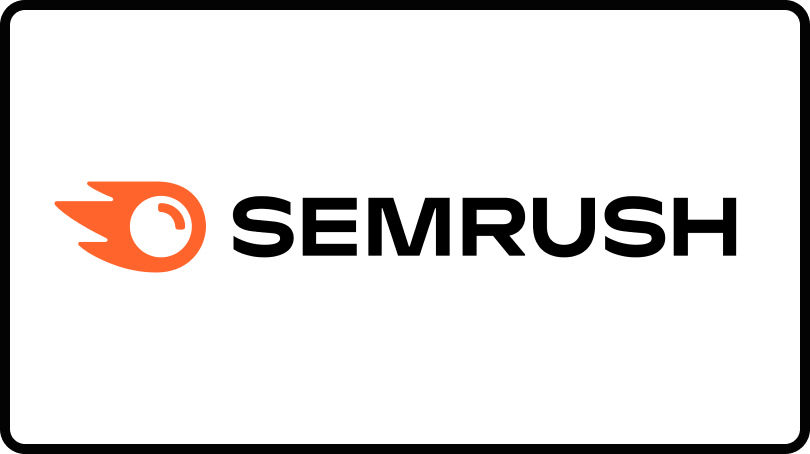
Semrush recently launched its GEO tool, and it’s currently only available to enterprises. They came late to this GEO tool race and primarily focus on the visibility aspect of things. That being said, they’re the leading traditional SEO tool with massive data capabilities and a large customer base.
- Key Features: Visibility analysis, robust keyword research, competitive analysis, and AI result monitoring on Google.
- Pros: Your full standard SEO suite, reliable, user-friendly.
- Cons: Limited to Google-centric AI features, indirect GEO insights.
- Best for: SEO-led teams that want GEO-lite capabilities inside an all-in-one SEO suite they already use.
- Pricing: Starts at $120 / month.
- Founded: 2008
- Headquarters: Boston, USA
3. Scrunch AI

Scrunch AI delivers a comprehensive enterprise-focused approach to monitoring and optimizing brand visibility within AI search ecosystems. In a world where users want answers instead of links, Scrunch AI offers a platform to help businesses give users what they’re looking for while boosting your brand’s visibility.
- Key Features: Real-time visibility monitoring, search journey mapping of AI-driven customer interactions, proactive hallucination and misinformation detection.
- Best for: Agencies and brands needing governance and cross-brand AI visibility with hands-on vendor support.
- Pros: Extensive insights, ideal for large enterprises.
- Cons: Not suitable for small businesses, no self-service option available.
- Pricing: Custom pricing offered upon request.
- Founded: 2022
- Headquarters: Salt Lake City, USA
4. Peec AI

Peec AI simplifies AI analytics with a straightforward approach, ideal for small-to-medium businesses and marketing agencies. Peec AI’s versatility makes it applicable across multiple industries such as healthcare, finance, and marketing. Peec’s dashboard is also user-friendly, making it a great choice if you aren’t an expert in AI platforms.
- Key Features: AI visibility metrics, source citation tracking, competitive benchmarking.
- Best for: SMBs and agencies wanting simple dashboards and competitive benchmarking without heavy ops.
- Pros: Easy to use, clear analytics, affordable.
- Cons: Basic feature set, lacks advanced options like in-depth sentiment tracking or optimization recommendations.
- Pricing: From €89/month.
- Founded: 2023
- Headquarters: Berlin, Germany
5. Otterly.AI
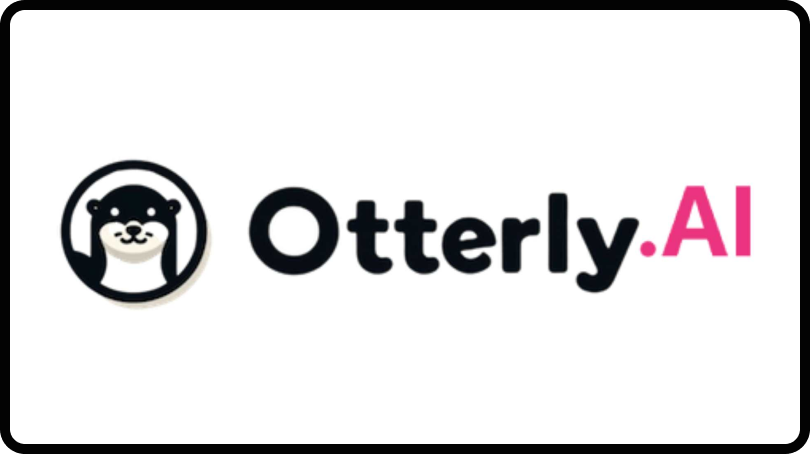
Otterly.AI is an intuitive and accessible AI search tool designed for monitoring and optimizing your generative engine presence. It’s particularly suitable for smaller businesses and startups that are primarily focused on the monitoring side of the equation.
- Key Features: AI visibility tracking, sentiment analysis, and monitoring link citations.
- Best for: Early-stage teams that want to monitor AI mentions and citations on a budget.
- Pros: User-friendly interface, affordable, good for beginners.
- Cons: Limited recommendation capabilities, basic analytics.
- Pricing: Starts at $49/month.
- Founded: 2023
- Headquarters: Vienna, Austria
6. Profound
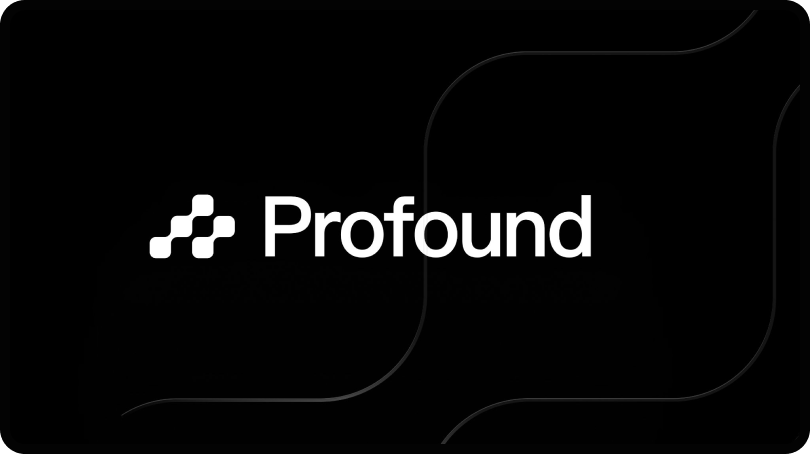
Profound provides a wide range of in-depth GEO analytics specifically tailored to large, global enterprises. One of the early movers in the space, they raised a seed round for Khosla Ventures and South Park Commons, among other notable VCs.
- Key Features: AI visibility tracking, detailed conversation and sentiment analysis, proactive crawler optimization.
- Best for: mid market brands needing robust analytics with enterprise controls.
- Pros: Highly detailed and robust analytics, multilingual support.
- Cons: Only suitable for enterprises, lacks SEO and content features, and is premium-priced.
- Pricing: Custom pricing upon request. For more information about pricing structure, reach out to Profound’s sales team.
- Founded: 2024
- Headquarters: New York City, USA
7. HubSpot’s AI Search Grader
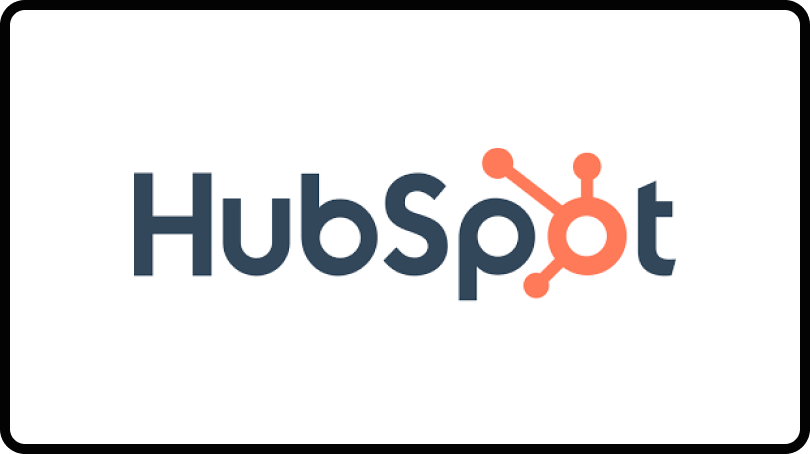
HubSpot’s AI Search Grader is designed to evaluate content’s search engine performance, providing insights and generative suggestions to help content rank better. It combines AI-driven analysis with SEO expertise, giving users a powerful tool to improve their content strategy.
Instead of just focusing on traditional SEO metrics, it also evaluates the semantic relevance of your content. This includes how well your content aligns with what AI-powered search engines understand in terms of context and user intent.
- Key Features: Provides suggestions to optimize content for better rankings within AI search, compares your content to competitors, and evaluates for conversational AI.
- Best for: Brands seeking a free GEO assessment and content teams who want a quick diagnostic to start the AI search conversation.
- Pros: Excellent for improving content visibility within AI search.
- Cons: Doesn’t account for all of the AI search algorithms, lacks deeper customization abilities.
- Pricing: Part of HubSpot’s Marketing Hub. WIth a freemium option but also starts at $23 a month and ranges up to $3,200 depending on your subscription tier.
- Founded: This tool was launched in 2023.
- Headquarters: Cambridge, MA.
8. Athena HQ

Athena HQ is an AI search visibility platform designed to assess and enhance the search engine performance of your content. Leveraging advanced AI algorithms, Athena HQ offers in-depth analysis of your website’s visibility, providing actionable insights and tailored suggestions to help your content rank higher in search results. Athena HQ’s tool also evaluates semantic relevance, which determines how well-aligned your content is within the given context.
- Key Features: AI-driven content analysis, semantic relevance evaluation, SEO recommendations, insights into user intent, content performance tracking.
- Best for: Growth teams that want actionable workflows plus AI visibility, not just dashboards.
- Pros: Can easily be integrated with other SEO tools and an easy-to-understand reporting dashboard.
- Cons: Limited customization capabilities for niche industries, doesn’t offer a complete GEO/SEO solution.
- Pricing: $295 for the lite version and $595 for their growth version. Also offers an enterprise version for custom pricing options.
- Founded: 2025
- Headquarters: San Francisco, CA
9. Ahrefs
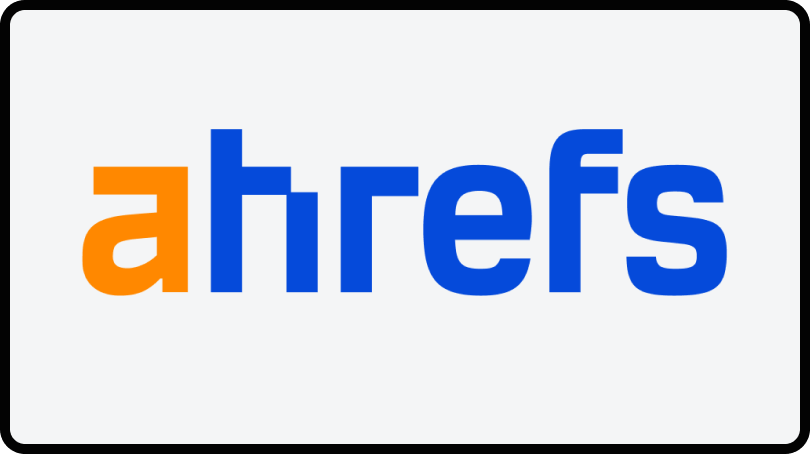
Ahrefs hasn’t really launched anything that is GEO-specific yet, but they provide powerful SEO tools crucial for building and maintaining site authority, indirectly supporting GEO effectiveness. They’re a key player that we cannot ignore in our research, but they aren’t a true GEO tool yet, so we’ve ranked them at the bottom of the list for now.
- Key Features: Comprehensive backlink analysis, site and content auditing.
- Best for: SEO teams strengthening authority and technical posture to support GEO, while using a separate tool for AI visibility.
- Pros: Excellent for improving overall site credibility.
- Cons: Does not directly track generative AI mentions or visibility.
- Pricing: Starts at $99/month.
- Founded: 2010
- Headquarters: Singapore
Quick GEO Tools Comparison Table
|
Tools |
Key Features |
Models Covered |
Ideal For |
Pricing |
|---|---|---|---|---|
|
Goodie AI |
Visibility monitoring, citation monitoring, optimization hub, agentic AEO actions, AI search attribution, agentic commerce visibility |
ChatGPT, Perplexity, Gemini, AI Mode, AI Overview , Claude, DeepSeek, Meta AI, Microsoft Copilot, Amazon Rufus |
End to end GEO platform for startups, mid market and enterprises who are willing to invest in AI search. |
$495 / mo (starting) |
|
Semrush |
Visibility monitoring, citation monitoring |
ChatGPT, Perplexity, Gemini, AI Overview |
SEO teams trying to get insight on AI search usage. |
$120 / mo (starting) |
|
Scrunch |
Visibility monitoring, citation monitoring, optimization hub |
ChatGPT, Perplexity, Gemini, AI Mode, AI Overview |
For startups with a strong emphasis on GEO monitoring and agent experience capabilities. |
Custom |
|
Peec AI |
Visibility monitoring, citation monitoring, optimization hub |
ChatGPT, Perplexity, Gemini, AI Mode, AI Overview, Microsoft Copilot |
For small teams focused on visibility monitoring. Part of the Semrush family of products. |
$49 / mo (starting) |
|
Otterly.AI |
Visibility monitoring, citation monitoring, optimization hub |
ChatGPT, Perplexity, Gemini, AI Mode, AI Overview, Microsoft Copilot |
For small teams focused on visibility monitoring. Part of the Semrush family of products. |
$49 / mo (starting) |
|
Profound |
Visibility monitoring, citation monitoring, optimization hub, AI search attribution |
ChatGPT, Perplexity, Gemini, AI Mode, AI Overview, Meta AI, Microsoft Copilot |
For startups and scale ups with a strong emphasis on GEO analytics. |
$499 / mo (starting) |
|
HubSpot Grader |
Visibility monitoring, citation monitoring |
ChatGPT, Perplexity, Gemini |
Quick free assessment. |
Free |
|
Athena HQ |
Visibility monitoring, citation monitoring, optimization hub |
ChatGPT, Perplexity, Gemini, AI Mode, AI Overview, DeepSeek, Meta AI |
For startups and scale ups with a strong emphasis on GEO analytics and actions. |
$249 / mo (starting) |
|
Ahrefs |
Visibility monitoring, citation monitoring |
ChatGPT, Perplexity, Gemini, AI Mode, AI Overview |
SEO teams trying to get insight on AI search usage. |
$99 / mo (starting) |
GEO Tools FAQs
Traditional SEO tools primarily focus on keyword analysis, backlinks, and on-page SEO factors. In contrast, generative search optimization tools go beyond basic SEO by leveraging AI to improve the quality of search results. They analyze context, intent, and semantic relevance, helping content rank better in AI-driven searches rather than just matching keywords.
Key features to look for in a GEO tool include AI-powered content analysis, real-time recommendations, intent alignment, semantic keyword optimization, and competitor benchmarking. A good GEO tool should provide actionable insights and enable you to create content that ranks in AI-powered search results.
While SEO experience is helpful, you don’t need to be an SEO expert to leverage GEO tools in your marketing strategy. Many GEO tools are designed to be user-friendly, providing clear recommendations that anyone can implement. Most of these tools offer actionable insights that simplify the optimization process, making them accessible to marketers, content creators, and businesses without deep SEO expertise.
Final Thoughts
As AI search continues to grow, leveraging these emerging GEO tools to monitor and optimize your brand visibility will be critical. Choose tools aligned with your business size and goals, focusing on clear metrics and actionable insights. Starting with GEO today ensures your content remains visible, authoritative, and relevant as our world continues to be revolutionized by AI.





